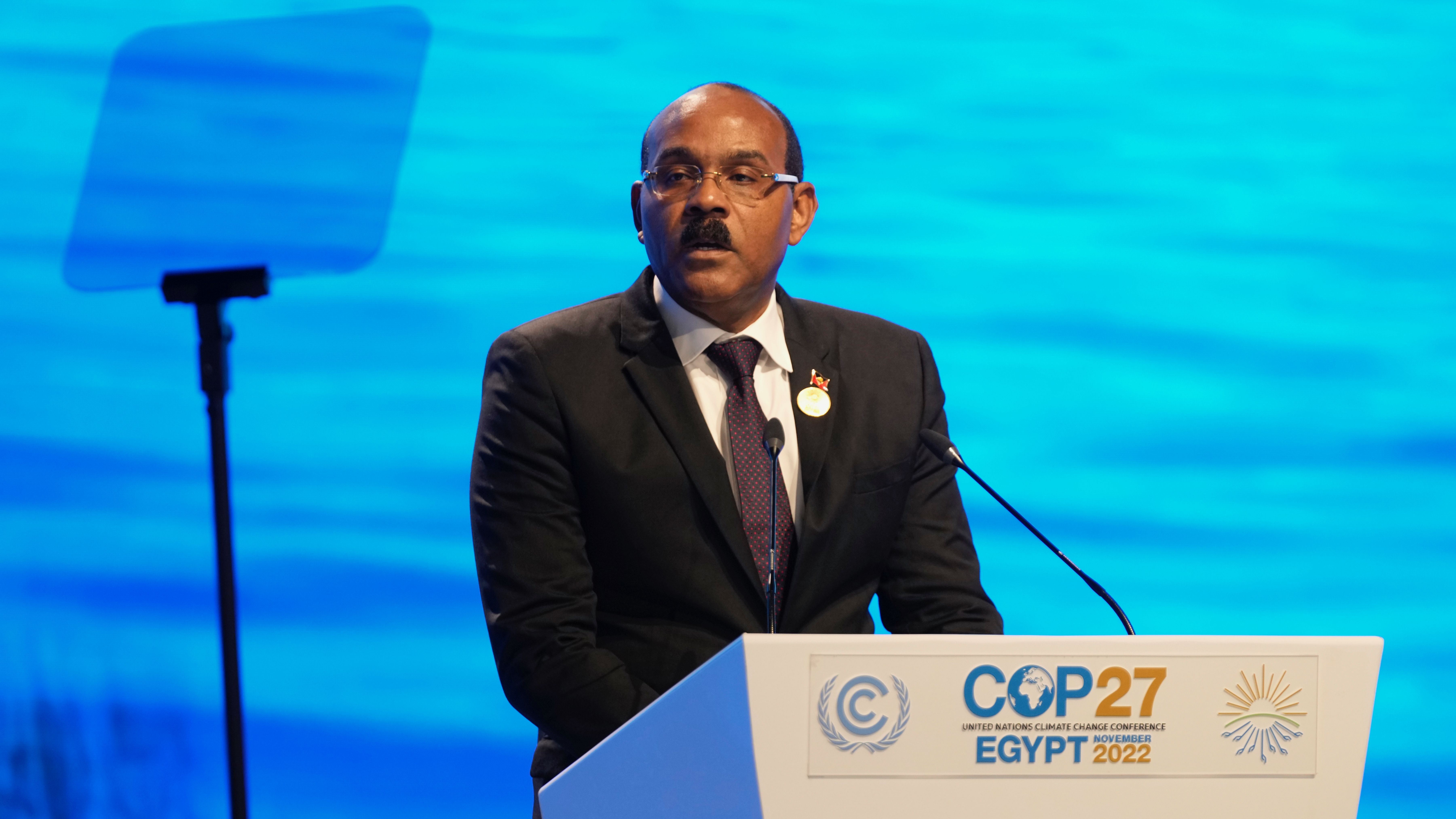Coalition of small island states makes a case that greenhouse gas emissions are covered by UN Law of the Sea
This week, a coalition of small island states is asking an international tribunal to rule on whether greenhouse gas pollution is covered under the UN’s Convention on the Law of the Sea.
The law governs marine territorial rights and navigation and requires states to prevent and control marine pollution.
Antigua and Barbuda Prime Minister Gaston Browne is co-leading the coalition of nine Pacific and Caribbean islands.
“We’re here today because over a century and a half of anthropogenic greenhouse gas emissions have polluted our precious oceans and devastated the marine environment,” he said before the court in Hamburg, Germany, this week.
Most of the excess heat created by greenhouse gas pollution goes into the world’s oceans, triggering marine heat waves, coral bleaching, migration of fish stocks and sea level rise — all of which poses an existential threat to the small island states, Browne said.
The coalition believes that the Law of the Sea should be interpreted by the court as requiring countries to slash emissions enough to limit global warming to 1.5 degrees Celsius.
“Without rapid and ambitious remedial action, climate change may prevent my children and my grandchildren from living on the island of the ancestors, the island that we call home,” Browne said.
The tribunal’s advisory opinion wouldn’t be legally binding. But David Freestone, a legal adviser for the island coalition, said it could pave the way for cases that would be.
“It does open the opportunity for cases to be brought by one state against another, to argue that they suffer specific damage as a result of the breach of the obligations of the Law of the Sea convention.”
It also could allow one country to file an injunction against another’s plan to build a new coal-fired power plant, for example, Freestone said.
Because “emissions from that coal-fired power station will actually have significant impacts on the oceans,” he said in an interview with The World.
The UN Law of the Sea Convention includes 169 parties. Although the US isn’t one of them, the tribunal’s ruling could inform decisions in national courts, according to Maria Antonia Tigre, senior climate litigation fellow at the Sabin Center for Climate Change Law at Columbia Law School.
But Tigre said that she thinks it’s unlikely that the tribunal would say exactly how much countries should be cutting their greenhouse gas emissions.
“So, I don’t think it would be the final answer that would make it obvious that a country needs to reduce emission by a certain amount, but I do think it would be very persuasive as further litigation is then being brought.”
Around 40 countries are scheduled to speak at the tribunal hearing over two weeks.
So far, Saudi Arabia and Australia have argued that the Law of the Sea does not apply to greenhouse gases.
Australia’s solicitor-general Stephen Donaghue argued these gases differ from the kind of marine pollution that the law was written to address 40 years ago.
“Greenhouse gas emissions present a new and different type of challenge to these conventional cases.”
This is the third case of its kind brought before international courts this year, and the second spearheaded by small island nations.
They say they’re at the tribunal because they’re weary of decades of climate talks leading to insufficient progress.
The Vanuatu’s Attorney General Arnold Kiel Loughman spoke before the court.
“Time and time again, we have been disappointed by the absence of concrete action at the international level.”
“We can leave no words left unsaid, no stone unturned, and no road left untaken in the search for a solution to the climate crisis.”
Arguments will continue through Sept. 25, and a decision is expected by next spring.
